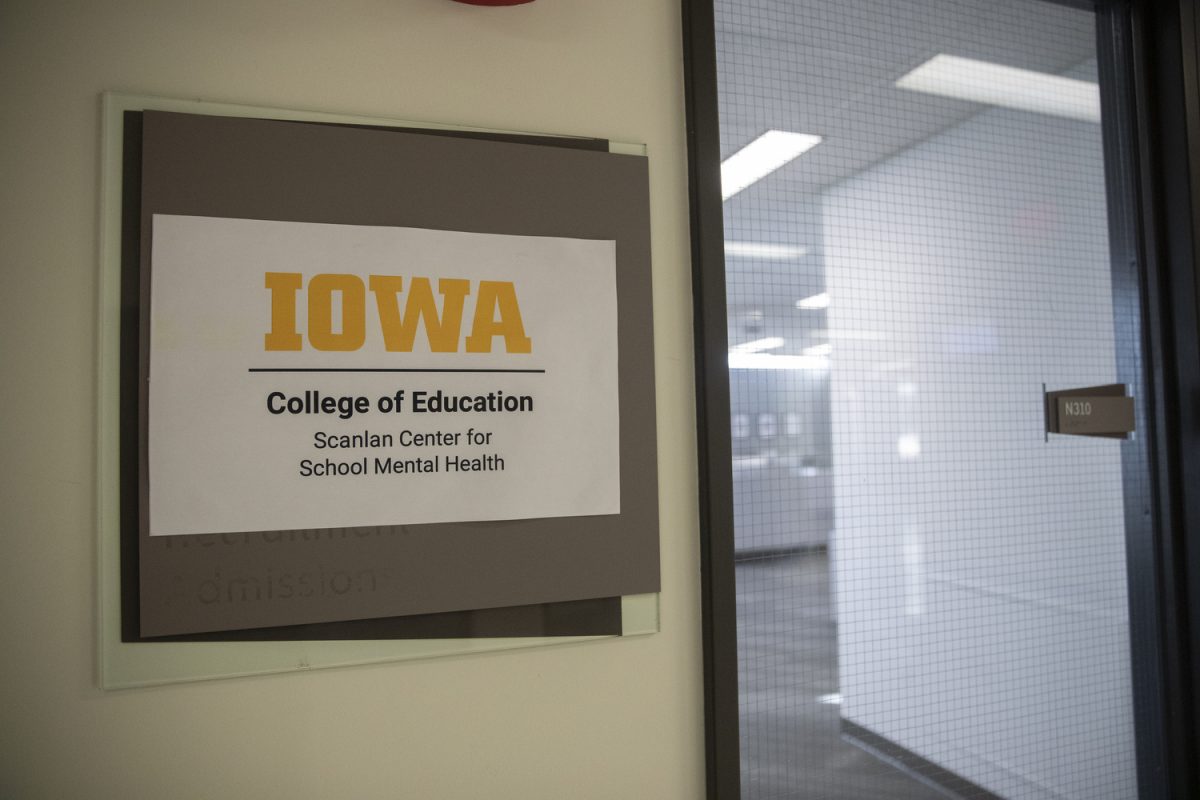U.S. Department of Education awarded the University of Iowa, and three other universities, a $10.4 million grant to launch a brand-new research center to increase access to mental health care in pre-K-12 schools.
The grant is being awarded to the UI’s Scanlan Center for School Mental Health, located in the College of Education, and will help launch the Mental Health Evaluation, Training, Research, Innovation Center for Schools, or METRICS.
The university will work in collaboration with the University of Madison-Wisconsin, the University of California Santa Barbara, and the University of South Florida.
The Scanlan Center will lead the training of mental health professionals to implement the best mental health practices and strategies in the field at various pre-K-12 schools in Iowa.
These training are set to begin in 2024 and will largely consist of asynchronous, or online, modules as well as quarterly webinars.
RELATED: Project PEARLS receives $500,000 grant
The primary purpose of these trainings will be to help school mental health professionals become acquainted with restorative practices, screening for suicide, trauma, and crisis, and other forms of training.
“Systems-level change is powered by collaboration and collectively leveraging expertise and resources,” Allison Bruhn, Scanlan Center executive director and professor of special education, said. “The work we have already done at the Scanlan Center, as well as the infrastructure we have built, are going to be critical to this venture.”
Gerta Bardhoshi, director of research and training at the Scanlan Center, said research shows students are more likely to seek and sustain mental health care when those services are available at school.
“The shortage among mental health professionals is a primary reason students lack access to the mental health services they need,” Bardhoshi said.
Bardhoshi said the center will help close this gap by providing schools across the nation with the tools they need to strengthen the number of high-quality mental health professionals and increase access to mental health services in high-need schools.
Kari Vogelgesang, director of professional development at the Scanlan Center, said the grant allows Scanlan to scale up its already robust professional learning programs, and to connect and work with more current and future school mental health professionals across the nation.
“Increasing educators’ understanding of mental health and well-being creates a more informed educational environment, which leads to early identification of students needing mental health support,” Vogelgesang said.
The center will help contribute to the overall well-being of students and will help increase the number of school mental healthcare professionals in the field, Vogelgesang said.
“Expanding access and integrating mental health services into our nation’s schools is a key component of increasing access to care for our students,” Bardhoshi said.



